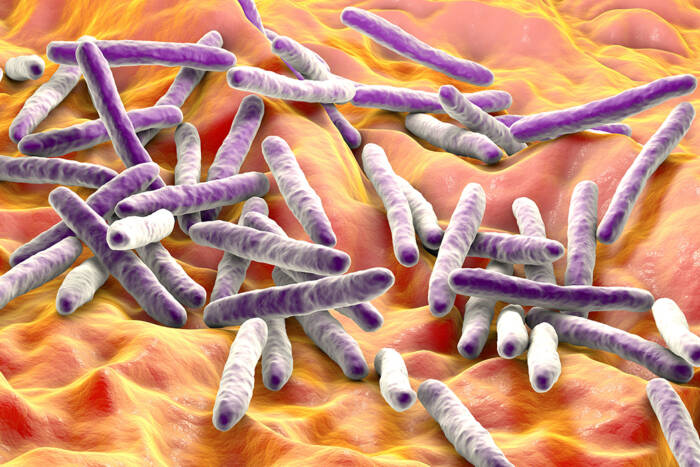Human Genetics Center Created at Rockefeller University
$5 Million Grant from The Starr Foundation Allows for Studies of Hundreds of Families
The Rockefeller University has established The Starr Center for Human Genetics, one of the largest U.S. centers for the study of diseases linked to heredity. The Starr Foundation provided a $5 million grant to establish the center, which will allow scientists to pursue studies of hundreds of families affected by such illnesses as heart disease, diabetes and Alzheimer’s disease.
Through the Starr Center, Rockefeller scientists also will explore the roles genes play in causing other complex disorders, including obesity, autoimmune diseases, mental illness and cancer. The center will provide university geneticists opportunities to collaborate with Rockefeller scientists, physicians and expert staff and to use advanced clinical and research facilities. Center studies will focus not only on identifying disease-linked genes, but also on determining the life-long effects these genes may have on human health.
“The Starr Center for Human Genetics will allow us to expand on Rockefeller University’s great strengths in biomedical research, particularly molecular genetics, to tease apart the tangle of genetic factors that underlie many diseases,” said Torsten N. Wiesel, M.D., president of the university. “We are enormously grateful to The Starr Foundation for giving us the capability to launch genetic studies requiring the participation of thousands of affected people. The valuable information generated by studies of this scale may lead to the design of innovative strategies for the prevention and treatment.”
In making the announcement, Wiesel noted that the Starr Center builds on the university’s strong, 50-year heritage in genetics research. In 1944, Rockefeller scientists Oswald Avery, M.D., Colin McLeod, M.D., and Maclyn McCarty, M.D., published their findings that DNA carries genetic information. Since then, Rockefeller faculty members have explored the structure, replication, transfer and mutation of DNA and genes as well as their roles in heredity, health and disease.
“The Starr Foundation is proud to contribute to the creation of a premiere center for human genetics in New York City at The Rockefeller University,” said Maurice R. Greenberg, chairman of American International Group, Inc. and The Starr Foundation. “We believe that this new interdisciplinary center will contribute to a deeper understanding of genetic diseases and pave the way for effective new approaches to diagnosis, treatment and prevention.”
The new center, directed by Jeffrey M. Friedman, M.D., Ph.D., professor at Rockefeller and associate investigator of the Howard Hughes Medical Institute (HHMI), includes staff and shared facilities to conduct clinical and laboratory studies, DNA banking, data analysis and design of prevention techniques and treatments.
“Molecular biologists, neuroscientists and biochemists will be among the many center members who exchange information, collaborate and conduct studies of diseases that affect millions of people the world over,” Friedman says. In addition to Friedman, center members include Jan L. Breslow, M.D., Frederick Henry Leonhardt Professor and senior physician, Maria Karayiorgou, M.D., assistant professor, Rudolph L. Leibel, M.D., associate professor and physician, Markus Stoffel, M.D., assistant professor, and Michael W. Young, Ph.D., professor and HHMI investigator.
Staff members of the Starr Center, including a genetic counselor, will screen families, referred by physicians, for eligibility in different studies. For most projects, 200 to 300 families will need to participate. Many of the studies will use the facilities of the Rockefeller University Hospital, a research facility with outpatient services.
Scientists also will scan samples of study participants’ DNA to locate markers that identify specific genes or groups of genes associated with diseases. Comparison of selected genes from different members of the same family will allow investigators to distinguish specific versions of a gene associated with a disorder or that predisposes a person to a disease.
Additional faculty members will create mathematical models to interpret genetic and other data from the family studies. For example, Friedman explains, if many genes have minor influences on the development of a disorder, a model helps determine which genetic factors are strongest and may pinpoint the region of the chromosome housing the genes.
The establishing of the center is one the activities the university is undertaking to enhance research, such as the recruitment of 10 to 15 new faculty members, improved facilities and new scientific initiatives, including the development of centers to foster collaborations among scientists from complementary fields. In addition to the Starr Center, the university has created three centers: theZachary and Elizabeth M. Fisher Center for Research on Alzheimer’s Disease, the Neuroscience Center and the Center for Studies in Physics and Biology.
To support the activities, the university launched in fiscal year 1995 a fund raising campaign with a goal of raising $82 million by June 1997. To date, the campaign has received commitments for more than $53 million, nearly 67 percent of the final goal.
The Starr Foundation, founded in 1955 by Cornelius V. Starr, supports medical research and higher education programs as well as those involving the arts and social welfare. Starr began a small insurance agency in Shanghai, China in 1919 and built the business into a billion-dollar, global insurance organization known today as the American International Group, Inc.


